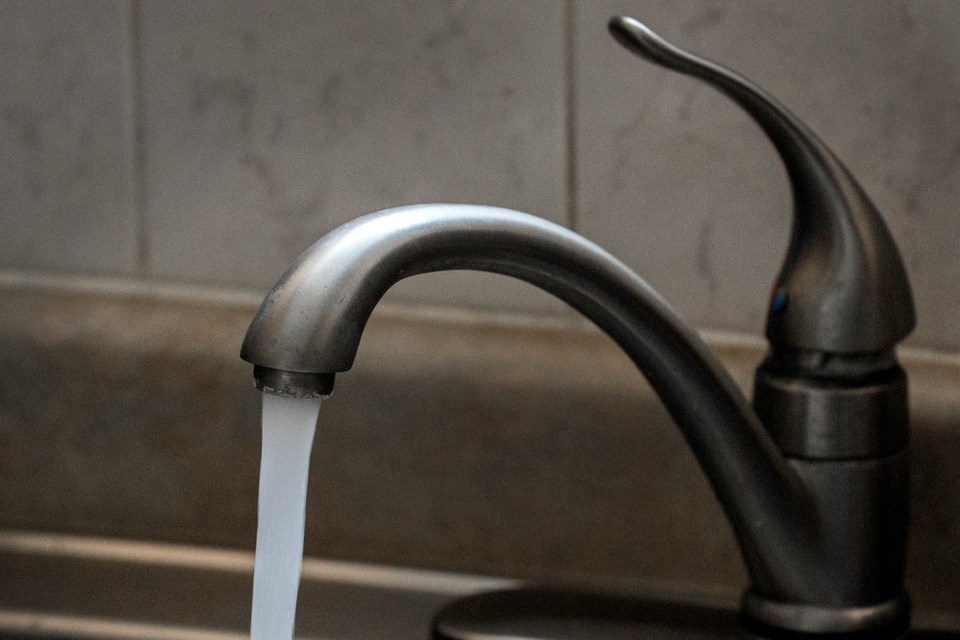EPCOR says the repairs underway at one of the company's two water treatment plants will likely take a few days, meaning the ban on non-essential water use for residents and businesses in the Edmonton region, including St. Albert, will remain in place until at least Sunday.
On Tuesday afternoon the company announced that the repairs in question are on the E.L. Smith Water Treatment Plant's “electrical feed system,” which powers distribution pumps, which in turn power water distribution to the region's water reservoir system. This electrical feed system failed in the early morning hours on Monday, prompting the company to put in place a mandatory ban on non-essential water use.
“This involves replacing major electric cables within the treatment plant electrical system,” the announcement explains. “Once completed, the pumps will be restarted.”
“There are four pumps in the E.L. Smith Plant system, two of which have now been temporarily restored and are in operation today. The largest two pumps are still unavailable due to the electrical issue.”
The announcement explains that additional plant shutdowns will be required to complete the cable replacement, and once the plant's pumping system is fully restored, further time will be needed to replenish water reservoirs throughout the region.
Craig Bonneville, EPCOR's director of engineering and technical services, told media on Tuesday afternoon that the region's water consumption fell from 370 million litres of water on Monday to 340 million litres today, a result of residents and businesses limiting water use.
“The majority of businesses have complied with our non essential use ban, however, we have received reports of businesses that continue to use water for non-essential purposes, and we will begin enforcing the ban by advising these businesses to comply or risk having their water turned off,” Bonneville said, adding that the 30 million litre reduction is likely enough to not require further water use reductions.
“We appreciate the tremendous effort that large customers and our regional municipalities have undertaken to reduce their water consumption and it has helped us in our restoration of services.”
Bonneville also said the company plans to take on a thorough investigation of what caused the E.L. Smith treatment plant to fail, noting that the plant is nearly 50 years old.
“We know what failed and the matter of which, but we're still investigating the exact cause of it,” he said. “With all of our assets we've got preventative and proactive maintenance programs and inspection programs to determine their condition.”
“The E.L. Smith water treatment plant is approximately 50 years old, so we do invest in that facility continuously to ensure that it is reliable.”
On Monday afternoon the City of St. Albert also enacted its water demand management measures, which largely instructs city staff to stop certain activities that use lots of water, such as fire hydrant flushing, outdoor rink flooding, pool filling, and more.
City spokesperson Cory Sinclair said in an email on Tuesday that the city is working with EPCOR to monitor water usage.
“The City will be monitoring the situation with EPCOR and should voluntary compliance within St. Albert not have the desired results, formal bans and enforcement actions under [the city's Water and Water Conservation Bylaws] may be considered,” Sinclair said.
Contraventions under the city's Water Conservation Bylaw, which dictates the process for how the city can enact water demand management measures like those enacted yesterday, can result in a fine of up to $100.00.




